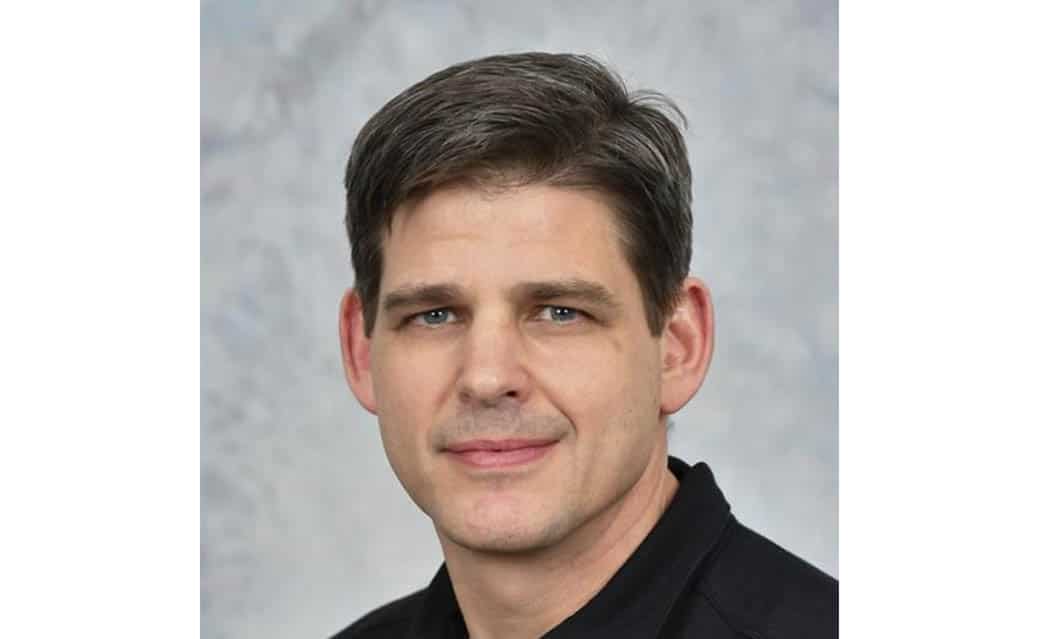Dr. Stephen Short appointed as the new Associate Vice-Principal of Research and Opportunities
Dr. Short shares his journey to UTM and the growing variety of research on campus.
Dr. Stephen Short is an associate professor of Biology at the University of Toronto Mississauga (UTM). He was recently appointed as the Associate Vice-Principal (VP) of Research Facilities by the Office of Vice-Principal, Research. According to him, research at UTM will continue to grow and develop. His appointment will help maintain and expand UTM’s research.
Before joining the UTM community, Dr. Short dipped his toes into research as an undergraduate student at the University of British Columbia. One of his first jobs in research was to grind sediment samples taken from the shallow bays just outside the Vancouver airport. “I sat for hours with a mortar and pestle grinding sediment into a fine powder so that it can go into the analytical pipeline,” he recalls.
Around his third or fourth year in his undergraduate studies, Dr. Short knew he wanted to pursue research in marine biology. “I started looking around North America for labs that conducted this research, as this field was very new at the time and there were very few labs conducting this research,” he says. Eventually, he got in contact with a professor at the University of Texas whose research aligned with his, later joining the lab as a PhD student.
Today, Dr. Short works in the Department of Biology and holds the position of Associate Chair of Research. He also serves as graduate faculty for the Department of Ecology and Evolutionary Biology, as well as the Department of Physical and Environmental Sciences at the University of Toronto Scarborough. His research focuses on the molecular ecology of aquatic microorganisms. More specifically, he works on viruses in aquatic environments that influence primary producers, such as plants, moss, or algae. His overall goal is to determine the large-scale effects of algae on aquatic ecosystems.
Dr. Short highlights the benefits of research at UTM, mainly the crossover in research in various fields. He explains that science is evolving in an interdisciplinary form and notes that there will always be room at UTM for focused research. However, multidisciplinary research is an extremely strong point of interest. Another benefit that UTM has is its vast natural environment as compared to downtown Toronto. There is a lot of research that utilizes the natural environment. Dr. Short’s own research about viruses has taken samples from the pond on campus.
In 2020, Dr. Kent Moore, a professor in the Department of Physics, asked Dr. Short to manage some of the many research projects conducted at UTM. Due to personal matters, he regretfully had to decline that offer. But in 2021, Dr. Moore took an administrative leave of absence for six months to focus on his own research. So, UTM Vice-Principal Alexandra Gillespie approached Dr. Short to fill the gap. During this time, they had conversations about becoming associate VP of Research when Dr. Moore got back from his administrative leave of absence.
Recently, there have been financial and budgetary restrictions that may slow down some of the growth. For example, there is a new science building being built whose funds are already committed. “This building will house the centre for medicinal chemistry, which was the reason to initiate that building being built,” explains Dr. Short. “There is also a turnover in faculty as existing faculty retires and new ones are recruited.” He states that UTM does not necessarily replace faculty with researchers doing the same research. Instead, the campus uses this opportunity to branch into new research that is not currently being explored.
When comparing the benefits of research at the UTM campus over the St. George campus, Dr. Short states that the Mississauga campus is “not spread out and there is more connectivity between departments.” At St. George, where most departments are housed in their own distinct buildings, there is less communication between researchers.
Dr. Short advises those who are interested in getting into research to apply for the Research Opportunity Program. This program allows students in their second to fourth years to participate in a faculty member’s research—all while receiving course credit. According to him, this is the best way to get research experience on campus. Looking at department websites and the University of Toronto Excellence award are also good options.

